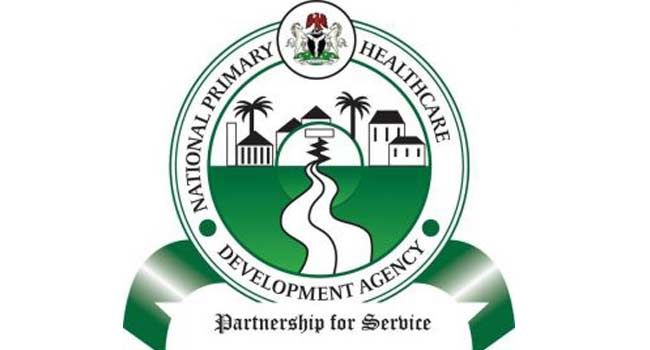From Fred Ezeh, Abuja
National Primary Health Care Development Agency (NPHCDA) has stressed the importance of collaborations among several stakeholders to positively drive and improve the health outcomes of Nigerians.
The Agency made reference to the positive results being achieved through the recently launched Health Sector Renewal Investment Initiative (the sector-wide approach), soliciting sustained momentum from the stakeholders to ensure significant changes in the health indices.
Dr. Muyi Aina, the Executive Director, NPHCDA, made the appeal in Abuja, on Thursday, at a Strategic Stakeholders’ Engagement on Universal Health Coverage (UHC) that was supported by Options Consultancy Services with focus on the theme “Harnessing Multi-stakeholder Approaches to Strengthen Primary Health Care Delivery and Accountability”.
He said that, though, funding remains a critical component in improving health outcomes, but it was also important to harvest ideas and experiences that would help in efficient utilisation of funds for the overall well-being of Nigerians.
He regretted that Nigeria still battle with some negative health outcomes, thus stressing the need to move away from wasting resources by ensuring every resource, monetary or human, are utilized in an appropriate manner.
He said: “We have outcomes in our health sector that are not acceptable. Coverage of the basic services that we need such as antenatal care, immunisation coverage, malaria prevention and treatment, HIV screening, all of those are far in terms of reach and coverage of where we really need to be.
“Substantial progress has been made, but not as we had expected. The pace has been slow, no doubt. Our mandate in the short period is to see what we can do to build on what has been done before us to accelerate progress.
“When we talk about resources, we always think of money. Money is very important but we need to spend it wisely. So we need ideas and collaborations. If we spend what we have right, we will cover a lot of ground than what we are covering now.
“Give us advice, bring us ideas, don’t just bring cash and say let’s fund this. That’s good but funding is no longer enough because we want to work with you all. You are all experienced people so when you come, come and share your experiences. If you give us money we will take but we are not in the business of wasting money anymore.”
Aina noted that the government is committed to making affordable and efficient health care services available for all Nigerians, stressing that the engagement with stakeholders in the health sector provided an opportunity to discuss some of the priorities of the health sector, the mechanisms in place to achieve them and the progress that has been achieved this far.
“We want to see an increase in number of Nigerians accessing basic health care services from our facilities whether it Is immunisation, antenatal or other services.
“We are not where we need to be in many of the areas, but we are building transparency into what we are doing. We are engaging the CSOs and the community,” Dr. Aina added.
The Chief of Health, United Nations Children’s Fund (UNICEF), Eduardo Celades, in his submissions regretted that new born mortality rate in Nigeria has not really improved in the last 10 years, hence the need for stakeholders in the health sector to explore ways of addressing health inequalities.
Celades urged the government to raise their bar of expectations and ambitions, appealing to governments at all levels and Civil Society Organisations (CSOs) to always put the communities in the centre of all discussions.
Meanwhile, the Regional Director, Options Consultancy Services, Dr. Ufuoma Omo-Obi, in his remarks, noted that the stakeholder’s engagement was aimed at harnessing efforts for results by galvanising clear actions that would show results in reduction of maternal, child mortality and other PHC services in few years ahead.
He said: “we need to ask ourselves some questions. How do we look at results in under five mortality, maternal mortality issues by engaging all stakeholders in the health space?
How can we harness the different energies we need to create that space where every stakeholder will really have that conversation, harness collective strengths, energies and vibes to forge a common cause?”
